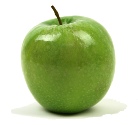



Helping you make healthy choices for you and your family

An Underactive Thyroid Gland
What are the symptoms of an underactive thyroid?
Disclaimer: The information in this article should not be regarded as medical advice. If you are receiving medical treatment or taking prescribed medication, you are advised to consult your GP or health practitioner before making any changes to your diet or lifestyle.

What is the thyroid gland?
The thyroid is a butterfly-shaped gland consisting of two lobes. It is situated in the neck just below the Adam’s apple. The thyroid produces two hormones - thyroxine (T4) and tri-iodothyronine (T3) which help to regulate the metabolism in every cell. They are essential for normal growth and development. T3 is also produced in the liver and kidneys. The pituitary gland in the brain helps to control the amount of thyroid hormones in the blood. When the levels are low, the pituitary produces Thyroid Stimulating Hormone (TSH) to increase the production of T4 and T3.
What is hypothyroidism?
This is the term for an underactive thyroid gland when insufficient amounts of T4 or T3 are produced.
Diagnosing an underactive thyroid
Having more than three of the above symptoms may be indicative of an underactive thyroid but a diagnosis can only be confirmed through a thyroid function blood test. This checks for the levels of the main thyroid hormones, T4, T3 and TSH and may also include other markers. Another test that may be performed is an antithyroid antibody test to check for antibodies to the thyroid hormones, which diagnoses Hashimoto’s disease. This is the most common cause of hypothyroidism when the immune system causes the body to attack the thyroid gland. Tests are available from your GP or Pulse Health Screening.
Causes of an underactive thyroid gland
Having more than three of the above symptoms may be indicative of an underactive thyroid but a diagnosis can only be confirmed through a thyroid function blood test. This checks for the levels of the main thyroid hormones, T4, T3 and TSH and may also include other markers. Another test that may be performed is an antithyroid antibody test to check for antibodies to the thyroid hormones, which diagnoses Hashimoto’s disease. This is the most common cause of hypothyroidism when the immune system causes the body to attack the thyroid gland. Tests are available from your GP or Pulse Health Screening.
Causes of an underactive thyroid gland
Apart from Hashimoto’s disease, there are a number of other possible causes, which include a genetic factor, as this condition is often found in families. Other causes include a deficiency of iodine in the diet, chronic stress and the effects from over treatment for an overactive thyroid gland. A high intake of fluoride, chlorine or bromide have also been implicated in causing hypothyroidism. Fluoride was used in the past to treat an overactive thyroid as it inhibits the uptake of iodine from the diet which is necessary to produce T4 and T3.
What are the medical treatments?
As an underactive thyroid gland reduces the amount of thyroxine in the body, the main treatment is to prescribe a synthetic form of thyroxine. Occasionally, a drug to replace T3 is necessary, too. Some doctors prescribe a natural treatment containing T4 and T3 which is derived from the dessicated thyroid glands of pigs. For the doctor to determine the correct dose for each patient, regular blood tests are necessary until the symptoms have disappeared. Thereafter, blood tests become less frequent unless symptoms reappear.
What else can help?
There are a number of dietary measures that can be taken to support the thyroid gland which include taking supplements to improve nutrient intake.
Kelp, a type of seaweed, is rich in iodine and may improve the effectiveness of thyroxine medication. Mustard greens, beansprouts, oats, peanuts, spinach, watercress, sesame seeds, butternut squash, chives, and pumpkin seeds contain tyrosine which is an amino acid needed to produce the thyroid hormones. Radishes have long been used in Russia to treat thyroid problems as they contain a chemical called raphanin which helps to keep levels of thyroid hormones in balance.
There are also some foods that should be avoided being eaten raw because they are goitrogens, which means they can cause the thyroid to produce less thyroxine. These foods include broccoli, cabbage, cauliflower, mustard, millet, and soy. Cooking them usually removes the goitrogenic effect but it would be wise to limit the amount that are eaten together at a meal.
Fluoride should be avoided or restricted because of its ability to interfere with the uptake of iodine in the thyroid. The obvious sources are toothpaste, mouthwash or water that has been artificially fluoridated. Another common source is from tea, including green tea. This is due to the areas where it is grown, as the fluoride is absorbed into the tea leaves from polluted soils and air.
A multivitamin and mineral supplement and antioxidant formula would be helpful that contain vitamins A, C and E, the vitamin B complex, including B12, plus magnesium, manganese, selenium, zinc and Co-Enzyme Q10. If iron and calcium are included in the multivitamin and mineral supplement, it is best to wait until at least 30 minutes have passed after taking thyroxine as they can interfere with the absorption of thyroxine.
Very often with an underactive thyroid gland, the adrenal glands are also affected due to stress. There are blood or saliva tests available to assess adrenal function but a simple blood pressure test can also give a clue. This requires the patient to lie on their back for five minutes and have their blood pressure recorded whilst laying down. They should sit up and have their blood pressure recorded again and then taken once more after they have stood up quickly. If the blood pressure rises between four and ten points with each measurement, the result is normal. If the blood pressure drops for either of the last two readings, this means that the adrenal glands are likely to be exhausted.
As an underactive thyroid gland reduces the amount of thyroxine in the body, the main treatment is to prescribe a synthetic form of thyroxine. Occasionally, a drug to replace T3 is necessary, too. Some doctors prescribe a natural treatment containing T4 and T3 which is derived from the dessicated thyroid glands of pigs. For the doctor to determine the correct dose for each patient, regular blood tests are necessary until the symptoms have disappeared. Thereafter, blood tests become less frequent unless symptoms reappear.
What else can help?
There are a number of dietary measures that can be taken to support the thyroid gland which include taking supplements to improve nutrient intake.
Kelp, a type of seaweed, is rich in iodine and may improve the effectiveness of thyroxine medication. Mustard greens, beansprouts, oats, peanuts, spinach, watercress, sesame seeds, butternut squash, chives, and pumpkin seeds contain tyrosine which is an amino acid needed to produce the thyroid hormones. Radishes have long been used in Russia to treat thyroid problems as they contain a chemical called raphanin which helps to keep levels of thyroid hormones in balance.
There are also some foods that should be avoided being eaten raw because they are goitrogens, which means they can cause the thyroid to produce less thyroxine. These foods include broccoli, cabbage, cauliflower, mustard, millet, and soy. Cooking them usually removes the goitrogenic effect but it would be wise to limit the amount that are eaten together at a meal.
Fluoride should be avoided or restricted because of its ability to interfere with the uptake of iodine in the thyroid. The obvious sources are toothpaste, mouthwash or water that has been artificially fluoridated. Another common source is from tea, including green tea. This is due to the areas where it is grown, as the fluoride is absorbed into the tea leaves from polluted soils and air.
A multivitamin and mineral supplement and antioxidant formula would be helpful that contain vitamins A, C and E, the vitamin B complex, including B12, plus magnesium, manganese, selenium, zinc and Co-
Very often with an underactive thyroid gland, the adrenal glands are also affected due to stress. There are blood or saliva tests available to assess adrenal function but a simple blood pressure test can also give a clue. This requires the patient to lie on their back for five minutes and have their blood pressure recorded whilst laying down. They should sit up and have their blood pressure recorded again and then taken once more after they have stood up quickly. If the blood pressure rises between four and ten points with each measurement, the result is normal. If the blood pressure drops for either of the last two readings, this means that the adrenal glands are likely to be exhausted.
To support the adrenal glands, a dose of up to 6 grammes of Vitamin C may help, as vitamin C is used up very quickly when someone is stressed. Echinacea can also wake up exhausted adrenals and help to boost the immune system. Siberian Ginseng is known to be helpful in supporting the adrenal glands. The recommended dosage is 200 to 400mg daily of an extract standardised to 1% eleutherosides. It is also recommended to have a week's break after every three weeks of treatment. This is particularly recommended for adrenal stress but should only be taken with support from a health care practitioner qualified in Herbal Medicine.
Stimulants such as caffeine and sugar should be avoided. A low glycaemic diet is recommended to control blood sugar levels and reduce further stress on the adrenals.
Useful websites
Useful websites
Thyroid UK - www.thyroiduk.org
Thyroid Patient Advocacy - http://tpauk.com/main
Dr Rind - www.drrind.com
Dr Mercola - www.mercola.com
Patrick Holford - www.patrickholford.com
The Environmental Illness Resource - www.ei-resource.org/treatment-options/treatment-information/natural-hypothyroid-treatment
About Thyroid - http://thyroid.about.com
Thyroid Patient Advocacy -
Dr Rind -
Dr Mercola -
Patrick Holford -
The Environmental Illness Resource -
About Thyroid -
|
|
Weight gain
|
|
|
Decreased appetite
|
|
|
Intolerance of cold
|
|
|
Cold hands and feet
|
|
|
Low body temperature
|
|
|
Dry skin
|
|
|
Dry, lifeless hair
|
|
|
Thinning or course hair
|
|
|
Brittle nalis
|
|
|
Thinning of outer edge of eyebrows
|
|
|
Puffy face, particularly under eyes
|
|
|
Puffy feet and hands
|
|
|
Headaches
|
|
|
Joint or muscle pains
|
|
|
Tinnitus
|
|
|
Decreased heart rate
|
|
|
Heart palpitations
|
|
|
Tightness in chest
|
|
|
High cholesterol and triglycerides
|
|
|
Low blood pressure
|
|
|
Low libido
|
|
|
Dizziness and vertigo
|
|
|
Brain fog/slowing of mental agility
|
|
|
Moodiness or depression
|
|
|
Lethargy
|
|
|
Fatigue in morning with difficulty rising
|
|
|
Lowered resistance to infections
|
|
|
Digestive problems
|
|
|
Constipation
|
|
|
Allergies
|
|
|
Hoarse, gruff voice
|
|
|
Shortness of breath
|
|
|
Carpal tunnel syndrome
|
| Your Health Your Future |
| Controversial Ingredients |
| Nutritional State |
| Parent and Child |
| Microwave Ovens |
| Recommended Books |
| Skin Absorption |
| Sodium Lauryl Sulphate |
| Propylene Glycol |
| DEA, MEA, TEA |
| Chemical Calculator |
| Fluoride |
| Aspartame |
| Fluoridation |
| Water Filtration |
| Planning a Pregnancy |
| Pregnancy Care |
| Post Pregnancy Care |
| Amazon Books |
| EBooks |
| About Us |
| Health Services |
